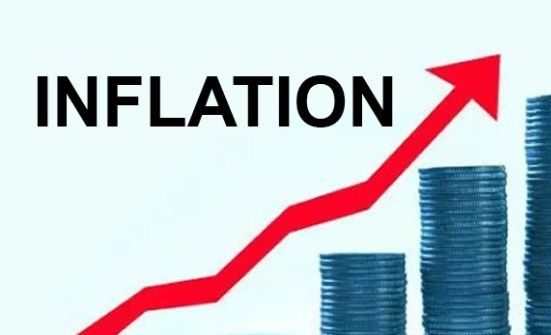Understanding Inflation: How it shapes your finances

Inflation is the rate at which the general prices of goods and services rise over time, eroding the purchasing power of money. Simply put, inflation means each unit of currency buys fewer goods and services as time passes. It is measured as a percentage increase in prices, and most countries use tools like the Consumer Price Index (CPI) to monitor inflation.
Inflation can be good or bad, depending on its severity and the overall economic context.
When inflation is good
Moderate inflation (around 2-3%) is generally seen as positive for the economy. It encourages spending and investment, as people buy now rather than wait for prices to rise. Businesses benefit from higher revenue, which can spur economic growth, increase wages, and create jobs. Inflation also helps debtors, as the real value of debt decreases over time.
When inflation is bad
High inflation (10% or more) can wreak havoc on an economy. It erodes purchasing power, making everyday goods and services more expensive, often outpacing wage increases. This creates uncertainty, lowers consumer confidence, and hurts savings. Hyperinflation, a severe and rapid rise in prices, can lead to economic collapse. Deflation, on the other hand, can also be harmful, as it discourages spending and investment, leading to reduced economic activity.
Best investment options during high inflation
When inflation is high, traditional saving methods (like keeping money in a bank) may not protect the value of your money. Instead, consider these investment options:
Real Estate: Property values tend to rise along with inflation. Real estate investments, especially rental properties, can provide income that adjusts with inflation, making them a strong hedge.
Gold and Precious Metals: Gold has historically been viewed as a safe-haven asset during periods of high inflation. Since gold’s value isn’t tied to a specific currency, it tends to retain or even increase in value when inflation rises.
Commodities: Investing in physical commodities like oil, gas, and agricultural products can offer protection against inflation, as their prices often increase when inflation is high.
Stocks in Inflation-Resistant Sectors: Companies in sectors like energy, healthcare, and consumer staples tend to perform well during inflationary periods, as they can pass higher costs on to consumers. Stocks of companies with strong pricing power and essential products often maintain profitability.
Inflation-Linked Bonds: Treasury Inflation-Protected Securities (TIPS) are bonds that adjust their value based on the inflation rate, ensuring that your investment keeps pace with rising prices.
Best Investment Options During Low Inflation
In a low-inflation environment, the economy tends to be more stable, and traditional investment options may provide better returns. Some of the best options include:
Stocks and Mutual Funds: Stocks generally perform well in low-inflation environments as consumer demand is steady, and businesses can borrow at low interest rates. Mutual funds and exchange-traded funds (ETFs) can offer diversified exposure to various industries and provide steady returns.
Government Bonds: Low inflation often means low-interest rates, making long-term bonds an attractive investment for steady income. Bonds provide stable returns and are less likely to lose value in a low-inflation environment.
Real Estate Investment Trusts (REITs): Low inflation correlates with low-interest rates, making mortgages more affordable. REITs provide exposure to real estate markets, allowing investors to benefit from rental income and property appreciation.
Cash and Short-term Investments: During low inflation, holding cash or short-term investments like savings accounts and certificates of deposit (CDs) can be effective, as their purchasing power is not significantly eroded over time.
How to protect your investments in Ghana
Investing in Ghana presents unique opportunities but also risks, especially in a changing economic landscape. Below are strategies to protect and grow your investments in Ghana:
Diversification: Spread your investments across different asset classes—stocks, bonds, real estate, and commodities—to reduce risk. Diversification ensures that if one sector underperforms, your overall portfolio remains stable.
Real Estate: Ghana’s real estate market has shown resilience even during inflationary periods. Investing in residential or commercial properties, especially in high-demand areas like Accra, can yield steady income and capital appreciation.
Government Bonds and Treasury Bills: Government of Ghana bonds and treasury bills offer relatively safe investment options. Despite inflation, these securities provide fixed returns and are backed by the government.
Gold and Commodities: Ghana is a gold-producing country, making gold a logical investment. Commodities like oil and agricultural products can also provide a hedge against inflation.
Work with Licensed Investment Experts: The complexities of investing in Ghana, especially amid inflation and currency fluctuations, mean that professional advice is crucial. SEC-licensed financial advisors can help you navigate investment decisions, identify opportunities, and minimize risk.
Invest in Strong Local Companies: Companies in Ghana’s energy, telecommunications, and consumer staples sectors have historically performed well during economic fluctuations. Investing in stocks of well-established local businesses with strong balance sheets can provide stability.
Monitor Economic Indicators: Keeping an eye on key economic indicators like the inflation rate, interest rates, and currency exchange rates is vital for adjusting your investment strategy. For instance, rising inflation may signal the need to shift from cash to more inflation-resistant assets.
Stay Liquid: Maintaining liquidity is important to seize opportunities or adjust your portfolio when the market changes. Keeping a portion of your portfolio in cash or easily liquidated assets ensures flexibility.
CONCLUSION: Building a Resilient Investment Portfolio
Inflation is an inevitable part of any economy, and its impact can be both positive and negative. The key to successful investing, whether during high or low inflation, is understanding the nature of inflation and choosing assets that can protect or grow your wealth.
In Ghana, opportunities in real estate, government bonds, stocks, and commodities can help you hedge against inflation and build a robust investment portfolio. However, working with experienced financial experts can help navigate the complexities of the investment landscape, ensuring you make informed, strategic decisions that protect your financial future.
Source: Dela Herman Agbo, Contributor





